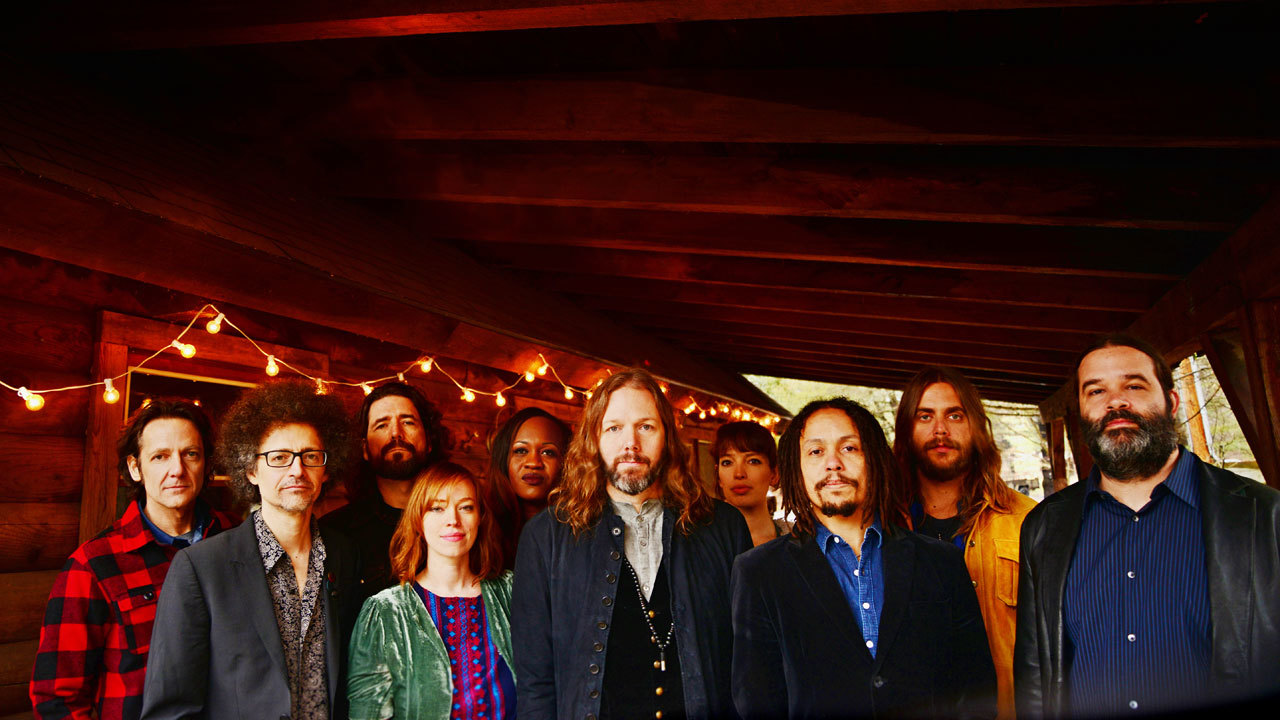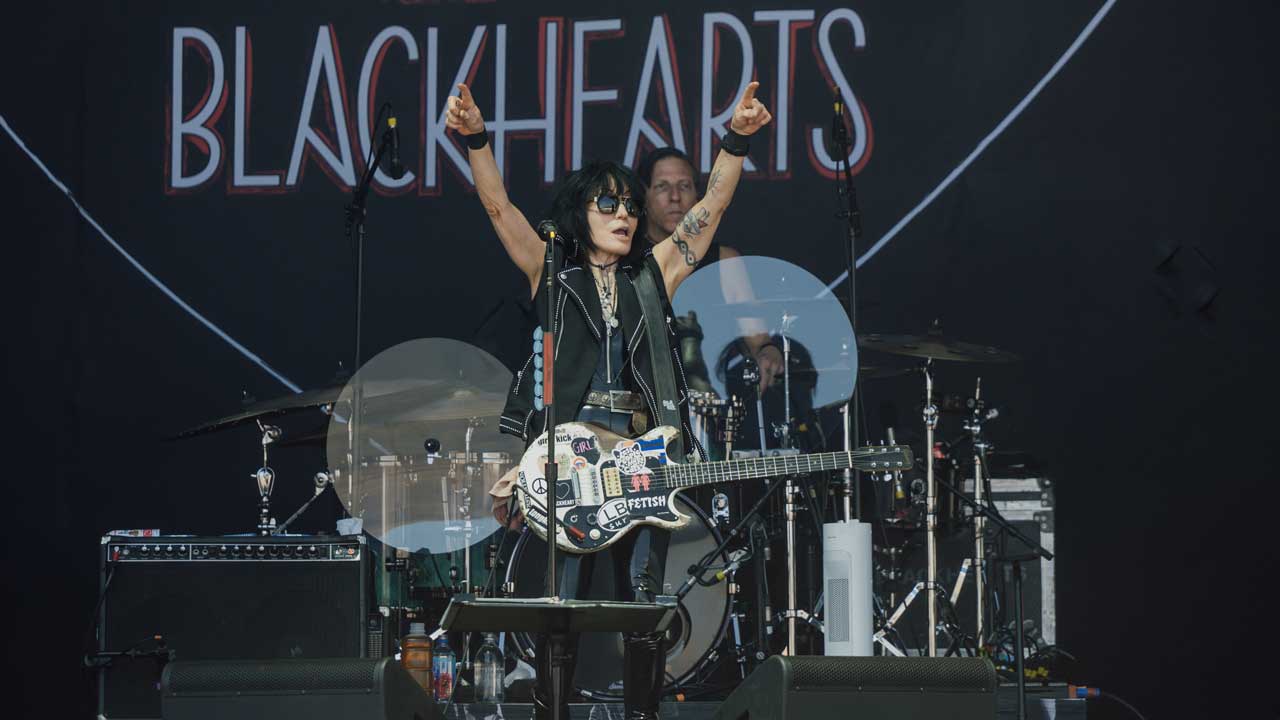The Magpie Salute: Former Black Crowes Rich Robinson and Marc Ford fly again
Rich Robinson and Marc Ford are back together again - but is it a different bird, or just different feathers?

Rich Robinson is annoyed. You wouldn’t know it from his voice – he’s too laid back for that – but his words are loaded with contempt, exasperation and frustration.
Robinson’s ire is aimed at reality TV (“We live in one of the most vapid cultural times ever”), at the music industry (“It’s been co-opted by bankers who don’t give a shit about anything other than money”), at consumer culture (“Every time you look at your phone, there’s an advertisement. Aren’t we advertised to enough?”). But it’s aimed especially at the way The Black Crowes, stuttered to a quietly undignified end three years ago.
“The Crowes didn’t have to end,” the guitarist says of the group he founded with elder brother Chris in Atlanta, Georgia in the late 80s. “I felt that band could still make great records. But there’s a lot of negativity, a lot of pettiness, a lot of really unhealthy behavioural patterns that came with a family dynamic. With this band we’re not going to fall into that trap.”
‘This band’ is The Magpie Salute, Robinson’s new outfit, and a determined attempt to move on from the ordeals of The Black Crowes. The irony is that his present sounds a lot like his past. The Magpie Salute (the name is a reference to a British superstition he picked up on while on tour) finds him reuniting with former Crowes guitarist Marc Ford, whose original stint in that band coincided with their masterpiece, 1992’s The Southern Harmony And Musical Companion. And if the one track they’ve put out so far, the rootsy Comin’ Home, evokes prime Black Crowes… well, since when has that been a crime??
“The sound of the Crowes is what I do, and trying to stray from that would be false, in a weird way,” says Robinson. “There’s a lot of people who want to hear that sound. And since my brother isn’t interested in The Black Crowes, and since he isn’t interested in this band, well, let’s just see what happens.”
Rich Robinson always got pegged as the quiet one in The Black Crowes, but that’s mainly because next to his voluble brother, anyone would sound like a church mouse. As his flashes of exasperation at the wider world suggest, the guitarist isn’t one to hold back on his opinions.
It’s still early days for The Magpie Salute – they haven’t even started writing an album, let alone recording one. The whole thing came about in the kind of loose fashion that was the Crowes’ stock-in-trade. In 2014, Robinson put out a solo album, The Woodstock Sessions, recorded live at upstate New York barn-cum-studio Applehead.
Sign up below to get the latest from Classic Rock, plus exclusive special offers, direct to your inbox!
“After Flux [his fourth solo studio album] came out in 2016, they wanted to do another one,” he says. “I was like, ‘I don’t want to do the same thing. Let’s bring some guests in.’”
Two of the people he reached out to were Marc Ford and another ex-Crowe, keyboard player Eddie Harsch. Ford had originally left the Crowes in 1997, his departure exacerbated by a serious drug problem. He rejoined briefly in 2005, but departed again the following year. These days he’s clean, although he’s not absolving himself of the sins of the past.
“To be so single-minded to get to a position where you were in The Black Crowes, and you’re supporting the Rolling Stones, you’ve got to be kind of a prick,” says Ford, a man who is as reserved and contemplative as his bandmate is blunt and forthcoming. “I lied and bullshitted and drugged myself into a very bad place. I had to come clean and start over.”
- Former Black Crowes keyboardist Eddie Harsch dies
- Buyer's Guide: The Black Crowes
- Black Crowes lacked brotherly love says Chris
- Why Chris Robinson traded the music industry for artistic freedom
Ford and Rich Robinson never fell out, but they hadn’t stayed in contact. When Ford got the call from Robinson to ask if he fancied being part of The Magpie Salute, he didn’t have to think about it. “It was a no-brainer,” he says. “Something special happens when we play together.”
Both say it was like picking up where they left off – with one exception. “My brother has a huge personality,” says Robinson. “He talks a lot, and it got to the point when I was around him, I wouldn’t talk because it was just kind of a hassle. When Marc and I were together in the Crowes, it was through the filter of Chris. So it was cool for he and I to sit and talk without that extra influence.”
The Black Crowes inevitably looms over anything Rich Robinson does, and the long shadow cast by his brother is hard to escape. Today he’s happy to talk about his former band, resigned to the fact that it’s over, but still irked by it.
“Towards the end of the Crowes, there was a push and pull from my brother to go down this Grateful Dead route – that’s what he wanted,” he says. “And I like rock’n’roll. It’s much broader in spectrum, and it draws from a lot more influences. There’s a million half-assed jam bands out there that play watered-down Grateful Dead music, but there’s not many bands out there that can do what we did. We were unique.
“And it ended over money, which is the worst reason to end a band anyway. My brother wanted pretty much all the money. What, after twenty‑five years you want to cut our drummer out? You want to take my percentage because you feel you’re worth it? And then to say: ‘Well, I didn’t want to do this anyway, I want to do my own thing…’ [Exasperated] Well why did you ask for all the money if you didn’t want to do it?”
Are you still in contact with Chris?
“No. I haven’t talked to him in a couple of years.”
Are the Black Crowes definitely, one hundred per cent over?
“Yeah,” he says without hesitation. “It’s done.”
The Black Crowes may have tumbled off the twig, but their spirit lives on in The Magpie Salute, beyond the corvid references in both bands’ names. The new group – a 10-piece line-up that includes ex-Crowes bassist Sven Pipien, drummer Joe Magistro and vocalist John Hogg, the latter formerly of British rockers Moke and Robinson’s short-lived early-00s band Hookah Brown – made their live bow with four shows at New York’s Gramercy Theater in January. Their setlists mixed Crowes classics with songs from Robinson and Ford’s respective solo careers, plus assorted well-aimed covers (Zeppelin, the Allman Brothers, Elton John, the Velvet Underground).
But the gigs were tinged with sadness. In November 2016, less than a month after Robinson had gone public with The Magpie Salute, keyboard player Eddie Harsch died unexpectedly. It lent the shows – which kicked off with a nine-minute movie dedicated to him – the air of a tribute to a man Robinson describes as “hilarious and brilliant”.
Harsch’s passing breaks one of the threads connecting Rich Robinson to The Black Crowes, but many more remain. And in truth, he’s not fighting his past so much as selectively embracing the less painful aspects.
“It’s exhausting to play music,” says Robinson. “You have to fight shitloads of egos and demons and this and that. But we’ve been very specific that we’re not going to do that. We’re not going to allow that negativity to eat this alive.”
Dave Everley has been writing about and occasionally humming along to music since the early 90s. During that time, he has been Deputy Editor on Kerrang! and Classic Rock, Associate Editor on Q magazine and staff writer/tea boy on Raw, not necessarily in that order. He has written for Metal Hammer, Louder, Prog, the Observer, Select, Mojo, the Evening Standard and the totally legendary Ultrakill. He is still waiting for Billy Gibbons to send him a bottle of hot sauce he was promised several years ago.

